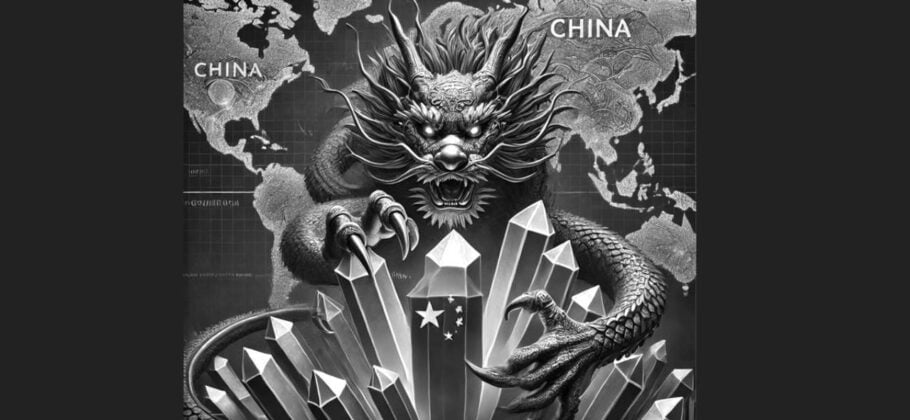China’s recent export controls on critical metals like antimony and the anticipated restrictions on tungsten have sent ripples of concern throughout the global minerals industry. These actions signal a shift in Beijing’s approach to leveraging its dominance in the global supply chain, raising questions about how far China might go and why these moves are so alarming.
The Growing Concern
China’s Ministry of Commerce recently announced that it would begin imposing export controls on antimony, a metal crucial for manufacturing bullets, nuclear weapons, and lead-acid batteries. These controls are set to take effect on September 15, and many in the industry are bracing for further restrictions, particularly on tungsten—a metal nearly as hard as a diamond, used in semiconductors, weapons, and industrial cutting machines.
The suddenness of these actions has caught many off guard. “Three months ago, there’s no way anyone would have thought they would have done this. It’s quite confrontational in that regard,” said Lewis Black, CEO of Canada-based Almonty Industries. The sentiment is echoed across the industry, with insiders worried about the implications of China’s tightening grip on these critical materials.
Why It Matters
China’s dominance in the production of antimony and tungsten is staggering. The country accounted for 48% of global antimony mine production in 2023, while the United States, for instance, did not mine any marketable antimony and hasn’t commercially mined tungsten since 2015. This makes the rest of the world heavily reliant on China for these critical materials, particularly in sectors like defense and technology.
The strategic importance of these metals cannot be overstated. Antimony is used in military equipment, and tungsten is vital for both defense production and semiconductor manufacturing. With the U.S. increasingly restricting China’s access to high-end semiconductors, Beijing’s move appears to be a calculated response—a form of economic retaliation that could have serious implications for global security.
The Broader Implications
The fear is that China’s actions could spark a dangerous escalation. By restricting the export of these critical metals, Beijing could be signaling its willingness to use its dominance as a geopolitical weapon. This could lead to a “snowball of escalation,” as Black puts it, where trade tensions spiral into more severe conflicts, particularly as the U.S. and China continue to clash over technology and military dominance.
Christopher Ecclestone, a mining strategist at Hallgarten & Company, predicts that China may extend these controls to other rare earth elements, further tightening its grip on the global supply chain. The implications for the U.S. and its allies could be severe, especially in the event of heightened geopolitical tensions in regions like the South China Sea or Taiwan.
The Unsettling Future
As the world grapples with the potential consequences of China’s export controls, the underlying message is clear: Beijing is willing to assert its dominance in critical areas to protect its national interests. This move is particularly disturbing because it highlights the lack of alternative sources for these essential materials. The U.S., for example, is scrambling to reduce its reliance on Chinese tungsten by 2026, but the road ahead is fraught with challenges.
In the broader context, China’s actions could reshape global trade dynamics and push other countries to rethink their dependence on Chinese minerals. The strategic use of export controls by Beijing is not just about protecting its national security—it’s also about sending a message that China can and will use its economic power to influence global outcomes.
China’s control over critical metals like antimony and tungsten is more than just a trade issue; it’s a strategic maneuver with far-reaching consequences. As Beijing continues to assert its dominance, the world must prepare for a future where access to these vital resources could become increasingly restricted. The West had become complacent thinking critical metals would be provided in a free international market. But China’s strategy has been to dominate these resources with the intention of using these markets for dominance and blackmail.The global community is left to wonder: How far will China go, and at what cost?











